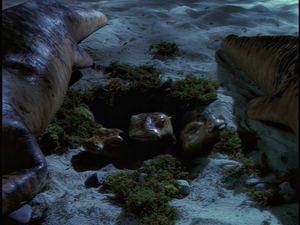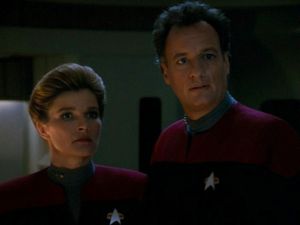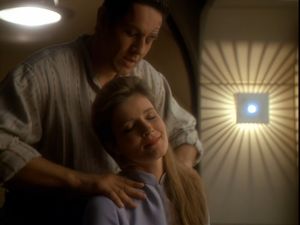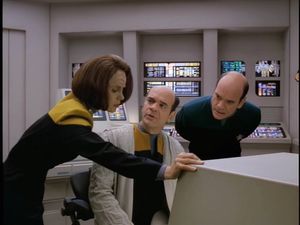Alliances
Episode 72
Friday 7 July 2023
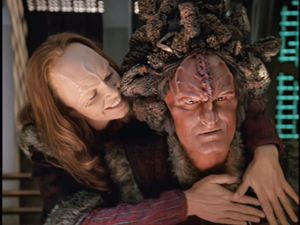
Star Trek: Voyager
Series 2, Episode 14
Stardate: 49337.4
First broadcast on Monday 22 January 1996
When a Voyager crewmember is killed in a Kazon attack, and his colleagues are forced to sit through the most butt-clenchingly clichéd eulogy in television history, a few of them declare that it’s time to forge an alliance with the Kazon, which seems unwise. What seems even more unwise is Janeway’s decision to ignore everything that history has taught us about white people, as she forges an alliance with the Trabe, who talk nicely and know which knife and fork to use. It all turns out pretty much how you would expect.

